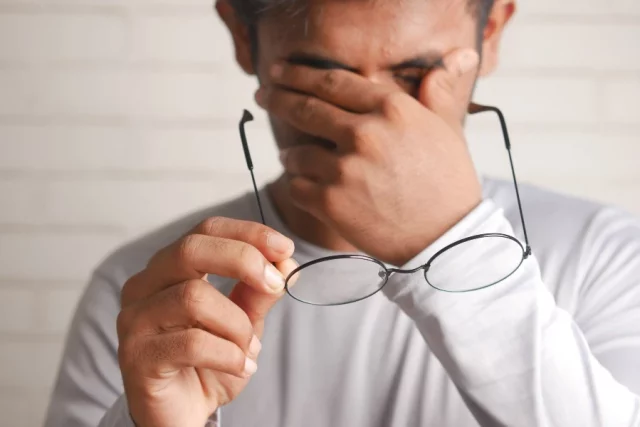Most people often look at their physical health and mental health as two separate things. However, the two are very much connected. If your physical health is suffering, it can affect your mental health and vice versa; both work in tandem and have an effect on your overall well-being. For instance, if you suffer from depression, your quality of life deteriorates. You become unable to function or enjoy life the way a healthy person can. Every aspect of your life can be affected when you suffer from a mental disorder, including your appetite, sleeping habits, career, and even your relationships. In severe cases, mental health issues can lead to more serious consequences like suicidal thoughts.
That said, you shouldn’t let any health problems take control over your life. You have it in you to seek help and get better, you just need to know where to start. Keep reading to learn how to adequately battle health disorders that negatively affect your well-being.
See A Psychiatrist
If you suffer from a mental health issue, then it is more than likely affecting your well-being. In this case, the best course of action is to see a psychiatrist. Getting psychiatric help is a lot easier now than it used to be. Although mental health issues are still stigmatized, more and more people are becoming accepting of mental health issues and understanding the importance of taking care of your mental health. Whether you suffer from depression, anxiety, paranoia, schizophrenia, bipolar disorder, or any other mental health disorder, a psychiatrist will help diagnose you and put you on the road to recovery.
If this is your first time seeking medical help, you should understand that there is a difference between a psychiatrist and a therapist. A therapist or psychologist will help treat and diagnose any mental disorder. However, a psychiatrist won’t only diagnose and treat you, but also prescribe medications as well and offer medical treatment and advice for mental health disorders. You should see a psychiatrist if what you are suffering from is affecting your well-being.
During your first appointment, your psychiatrist will get to know you, learn about your symptoms, and give you an initial evaluation. If your case requires medication, they will prescribe medication based on your symptoms and conditions. Honesty is vital in this case, don’t keep anything from your psychiatrist even if there are things that you are embarrassed about like various addictions. They are here to help, not pass judgment. Write everything down in case you forget something, and make sure to take all the medication they prescribe and follow all the advice they give you.
You should be patient because the road to recovery is long but with medication, regular visits to your psychiatrist, and taking the appropriate steps to take care of yourself, you will start to notice an improvement in your mental health and well-being.
Enrolling In A Treatment Center
In some cases, you may benefit more from in-patient treatment where you spend a certain amount of time (usually 28 days) at a rehab or a treatment center. These centers are usually for addiction problems; like substance abuse, alcohol abuse, gambling addiction, or serious mental health issues like depression, post-traumatic stress disorder, self-harm, eating disorders, or any personality disorder.
For instance, if you suffer from anorexia disorder, you will find yourself eating excessively, followed by self-induced vomiting, obsessing over calorie count, refusing to eat, obsessing over your body measurements, and suffering from extreme weight loss. In this case, you will need to enroll in a treatment center to help you learn how to cope with your eating disorder and receive proper care, preventing further self-harm. If not treated, eating disorders can lead to serious health consequences like weak bones, dehydration, kidney failure, heart problems, and diabetes. This life-threatening condition can also lead to anxiety, depression, and addiction.
One of the major problems with eating disorders is that it is so stigmatized that many people feel ashamed and guilty to admit they are suffering from them. If you or someone you know is suffering from this order, you shouldn’t feel ashamed to seek help since we all need it, but you should also understand it’s important to take care of your well-being and that treatment is the best option. You can make a full recovery if you take a serious step to help yourself get better.
There are many treatment facilities all over the country that can help you deal with any mental issues by offering you a safe place to speak about your problems, medication, detoxing (in case of substance addiction), comfort, and a community of doctors, and nurses who are willing to help you through this journey. Additionally, you will get the chance to interact with people who are going through a similar experience, which will make you feel less alone and will give you the motivation and support you need to keep going. With these facilities, you are kept away from temptations that can take you back to your old behavior and anything that can potentially trigger your mental issues like anxiety or depression. Simply put, you are given the chance to take control over your life instead of feeling like you’re at the mercy of a health disorder.
Look After Yourself
Getting psychiatric help or enrolling in treatment is a great first step on your road to recovery. However, what will happen when you are back in the real world? Recovery takes time, and since you have decided to seek help to get better, you will need to make some changes in your life to improve your well-being. Basically, you will need to change your overall lifestyle and replace your unhealthy habits with healthy ones. You will need to apply healthy habits like eating healthy, staying hydrated, and working out as well as practicing self-care habits when necessary. This generally means adopting healthier coping mechanisms like watching a movie and eating comforting food or seeking out a company that feels good to be around when you feel stressed, rather than falling back into harmful habits. You should also take a look at the people in your life as well and cut off all the toxic ones in your life who either trigger your anxiety or are enablers and a danger to your sobriety.
Stay close to the people who love you and support you no matter what. You will need them by your side, especially during recovery. Take a break whenever you need to and understand your mental health is now your priority. There will be times when you will feel down or be close to relapsing. Make sure to ask for help and talk about your feelings with a therapist or a friend during these times.
There is a light at the end of the tunnel, even if your mental disorder is telling you otherwise. You can recover and get better, but the first step is admitting that you have a problem and not being afraid to ask for help. Everyone is fighting a secret battle, you aren’t alone and there is nothing to be ashamed of. Make your well-being a priority today and seek treatment, and in time you will become a better version of yourself.














